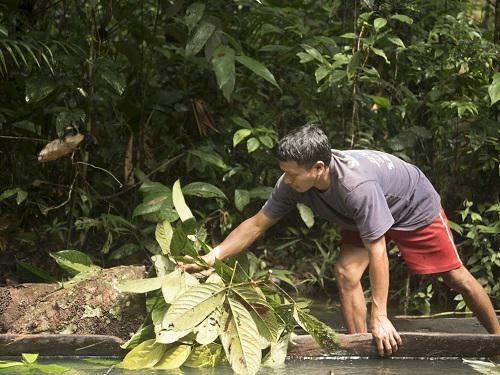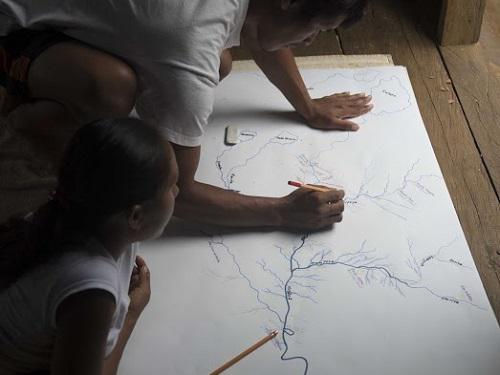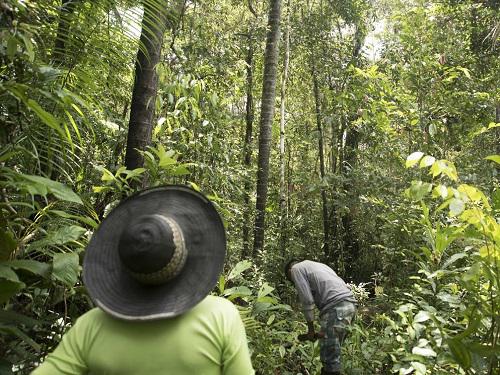Alejandro Campuzano Zuluaga
Indigenous communities in Colombia have the right to use natural resources in their territories autonomously. In the Colombian Amazon, in Vaupes department is a river called Tiquié. AATIZOT is the indigenous organization in charge of this territory; made up of 11 communities they have been organizing their own territory for more than 10 years. Recently it has been manifest the increment in the decline of the fisheries present in the zone. The main objective of these project is to build through participate investigation and with the use of traditional ecological knowledge a management plan for the fish resources in Colombian Tiquie.

This project was built with the participation of the leaders of AATIZOT and it was agreed that the main objective of these project is to build through participate investigation and with the use of traditional ecological knowledge a management plan for the fish resources in Colombian Tiquie. To accomplish this it´s necessary to identify the different problems regarding fish stocks, as well as the agreements and rules of usage for this resource. We will also identify the forms of traditional ecological knowledge in relationship with the classification of fish, ecology and management. We will create a video with the full participation of the people from the communities as a management tool for AATIZOT.

We will be working with 6 local people from different communities which will be co-investigators and will participate in the production of the video, this fieldwork will be as a training time for this people to learn some social investigation techniques and audio-visual making, in the aim of preparing them as local investigators and communicators.

We will be traveling the 11 communities where will have workshops in each community to understand the perceptions of the people about fish resources. Also, through interviews with the knowledgeable elders and several fisherman we will inquire about the actual and the traditional management of the fisheries, how they have changed, keeping in mind the different capturing techniques, the places where the fishing takes place, the different times of year, traditional calendar, among others. In these interviews, we will also inquire about the ecological aspects of the fishes and the river to better understand the dynamics present in the ecosystems.
We will also be visiting different places that are important regarding fish resources and getting to know the different fish capturing techniques. A lot of work has been done related to local cartography. We will analyse these maps with some of the fishermen and knowledgeable elders to identify important sites for the fisheries in the river, such as reproduction and spawning sites and sacred sites. While we will be travelling through the river tracking the zone with GPS.
This work will contribute with the development of the plan de vida indigena for AATIZOT zone with the proposal of a management plan for the fish resources, as well as a video for internal communication in communities that will help the management of these resources and the conservation of the traditional ecological knowledge.